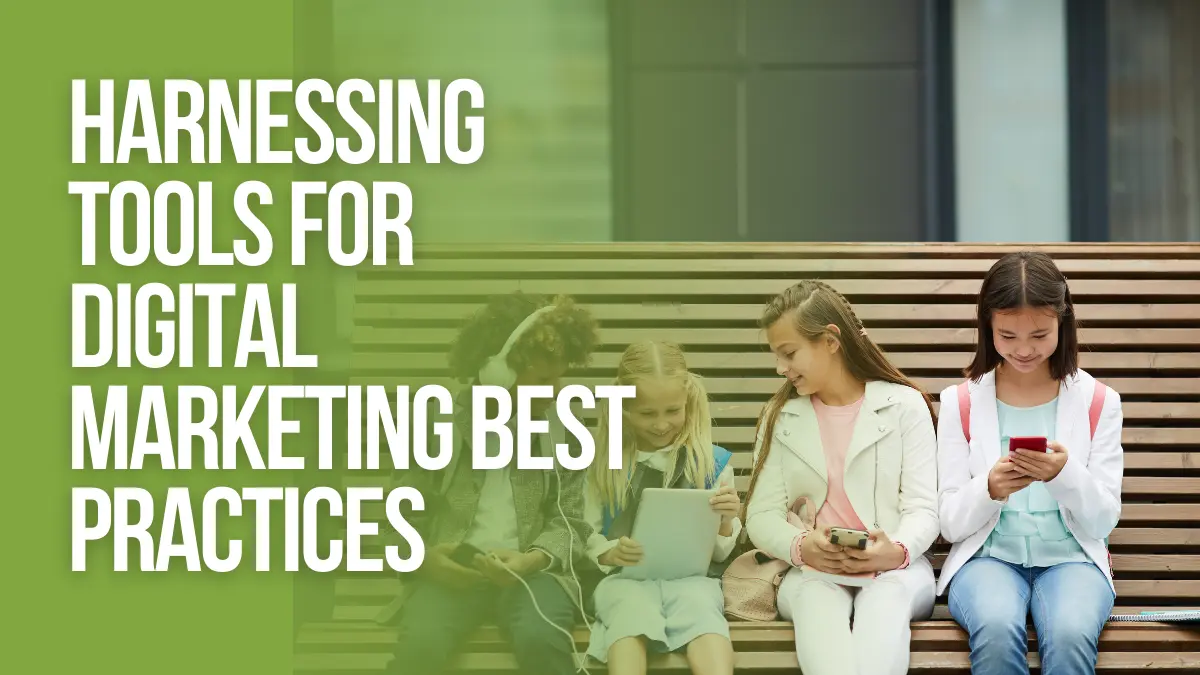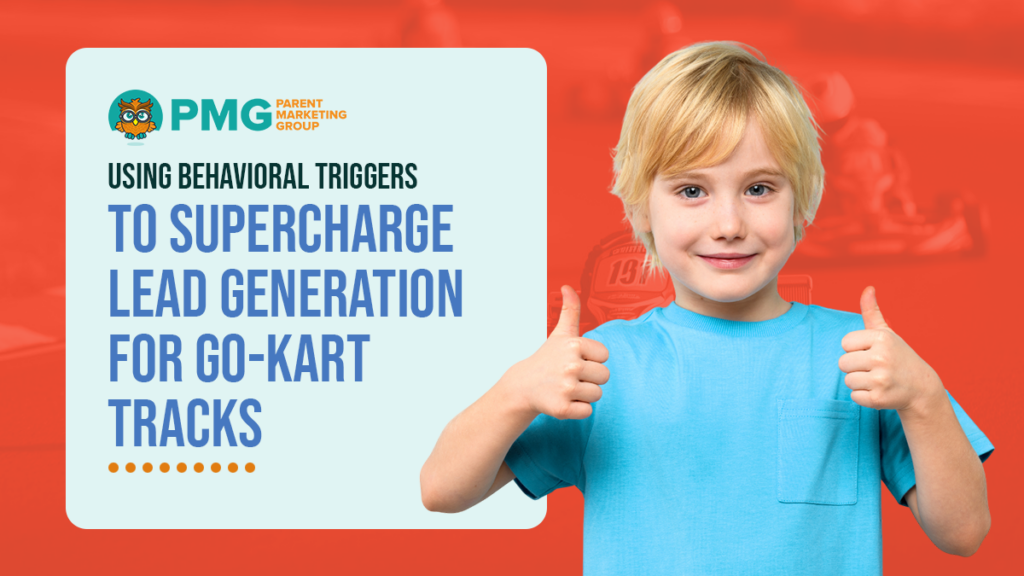Online marketing tools have revolutionized how businesses connect with their audience, making it more manageable to drive engagement, track performance, and boost sales. With the right tools, you can streamline your marketing efforts and achieve measurable results that help your business grow. However, not all tools are created equal, and finding the appropriate ones can be a game-changer for success.
This blog explores five must-have online marketing tools that empower you to save time, improve efficiency, and deliver results that matter. Whether managing social media, optimizing your website, or nurturing customer relationships, these tools elevate your marketing strategy and help you emerge in a competitive market. Let’s dive in and discover how they can transform your business!
1. Harnessing Tools for Digital Marketing Best Practices

In the fast-paced digital marketing world, using the right tools can make all the difference in achieving your business goals. Digital marketing best practices rely on data-driven insights, streamlined processes, and optimized content to deliver impactful results.
Optimizing Campaigns with Analytics Tools
Analytics tools are indispensable for tracking and improving the performance of your marketing campaigns. By providing valuable insights, these tools help businesses understand what works and what doesn’t.
- Website Behavior Tracking: Tools like Google Analytics show user interactions, including page views and time spent on your site.
- Conversion Metrics: Platforms like Kissmetrics measure the number of users who complete desired actions, such as purchasing or signing up.
- Audience Segmentation: Tools like Adobe Analytics divide your audience into groups for more targeted strategies.
By leveraging analytics, you can make data-backed decisions that refine your campaigns and drive better results. These tools ensure every effort is optimized for maximum impact.
Automation Tools for Efficiency
Repetitive tasks like email marketing, lead nurturing, and social media posting can consume valuable time. Automation tools take the burden off your plate, enabling you to focus on strategy and innovation.
- Email Campaigns: Mailchimp and ActiveCampaign automate personalized emails for your audience.
- Social Media Schedulers: Hootsuite and Buffer help plan and post content consistently.
- Workflow Automation: Zapier connects multiple platforms to streamline routine tasks.
Using automation tools ensures consistency while freeing up resources for creative projects. These tools also reduce human error, improving the overall quality of your marketing efforts.
Enhancing SEO with Specialized Tools
SEO tools are critical in improving your rankings and driving organic traffic. By optimizing your content and monitoring its performance, these tools ensure your business stays competitive.
- Keyword Insights: Ahrefs and SEMrush identify high-ranking keywords to include in your content.
- On-Page SEO Optimization: Tools like Yoast SEO guide you in creating search-friendly content.
- Competitor Analysis: Platforms like SpyFu help analyze and compare your competitors’ SEO approaches and strategies.
With SEO tools, you can locate opportunities to improve your visibility and ensure your content reaches the right audience. These resources simplify the complex world of SEO, making it actionable for businesses of all sizes.
2. Empowering Your Team with a Marketing Group Approach

A collaborative marketing group approach can transform your team’s work, fostering creativity, improving efficiency, and ensuring campaign consistency. By leveraging the power of collaboration and the right tools, your marketing group can achieve seamless communication, streamlined project management, and outstanding results.
Collaborative Platforms for Teamwork
Effective collaboration is the pillar of any successful marketing group. Platforms that enable seamless communication and idea-sharing can keep everyone aligned and motivated.
- Real-Time Messaging: Tools like Slack allow teams to communicate instantly and stay updated on tasks.
- Brainstorming Spaces: Digital whiteboards, like Miro, provide a space for creative idea-sharing.
- Centralized File Sharing: Platforms like Google Drive ensure everyone can access and collaborate on documents.
By using these platforms, your team can break down silos, foster creativity, and ensure everyone is on the same page, no matter where they are.
Streamlining Campaigns with Project Management Tools
Keeping campaigns organized and on schedule is a challenge for any marketing group. Project management tools can help streamline workflows, ensuring tasks are completed and deadlines are met.
- Task Assignment: Trello’s boards and Asana’s workflows allow clear task delegation and tracking.
- Progress Tracking: Tools like Monday.com offer visual progress updates to keep everyone informed.
- Integrated Calendars: Platforms like ClickUp sync tasks with team calendars for better scheduling.
These tools help manage workloads and provide transparency and accountability within your team, ensuring that campaigns run smoothly from start to finish.
Encouraging Creativity Through Feedback and File Sharing
Creativity thrives in an environment where feedback is constructive, and ideas are easily shared. The right tools enable marketing groups to collaborate on projects in real time, ensuring the best outcomes.
- Live Editing: Google Docs and Canva allow team members to collaborate on documents and designs simultaneously.
- Feedback Integration: Tools like Figma enable teams to comment directly on designs.
- Version Control: Dropbox ensures no work is lost, offering easy access to earlier versions of files.
These resources allow your marketing group to focus on refining ideas and executing campaigns without technical roadblocks, leading to higher-quality results.
3. Mastering Using Social Media for Marketing

Social media has become a fundamental tool for businesses to connect with their audience, gain brand awareness, and drive sales. Effectively using social media for marketing requires a strategic approach that combines engaging content, analytics, and consistency.
Crafting Engaging Content
Content is at the heart of every successful social media marketing strategy. Your posts must be creative, relevant, and tailored to your audience to capture attention and encourage interaction.
- High-Quality Visuals: Use tools like Canva to design eye-catching graphics and videos.
- User-Generated Content: Share content your customers create to build trust and authenticity.
- Interactive Posts: Include polls, quizzes, or Q&A sessions to engage your audience.
Engaging content attracts followers and encourages them to share and interact with your brand, amplifying your reach and influence.
Scheduling and Consistency
Consistency is inevitable in maintaining a strong social media presence. Scheduling tools help ensure your posts go live at the right time, reaching your audience when they’re most active.
- Social Media Calendars: Tools like Hootsuite or Buffer allow you to plan and deliver posts in advance.
- Automated Posting: Platforms like Sprout Social ensure your content is published even offline.
- Content Templates: Create reusable templates to save time and maintain a consistent style.
With a structured schedule, your brand can maintain a constant presence, keeping your audience engaged and informed without missing opportunities.
Analyzing Performance
Understanding what works and what doesn’t is essential for refining your social media strategy. Analytics tools provide the insights you need to measure success and identify areas for improvement.
- Engagement Metrics: Tools like Meta Business Suite track likes, comments, and shares.
- Audience Insights: Analytics on Instagram or Twitter reveal follower demographics and behaviors.
- Post Performance: Platforms like SocialBee highlight which content resonates most with your audience.
These metrics allow you to fine-tune your content strategy, focusing on what drives engagement and achieving better results over time.
Building Relationships and Community
Social media isn’t just about broadcasting—it’s about fostering meaningful relationships with your audience. Engaging directly with your followers can build loyalty and strengthen your brand image.
- Responsive Communication: Reply to comments and messages promptly to show you value your audience.
- Exclusive Groups: Create private communities on Facebook to engage with your most loyal followers.
- Collaborations: Partner with influencers or different brands to connect with new audiences.
By focusing on building a community, your brand can turn followers into loyal advocates who actively support and promote your business.
4. Elevating Customer Engagement with Email Marketing Tools
Email marketing remains one of the adequate ways to engage customers and develop lasting relationships. With the relevant email marketing tools, businesses can deliver personalized messages, nurture leads, and drive conversions.
Crafting Personalized Campaigns
Personalization is the key to making your emails emerge in crowded inboxes. Email marketing tools make it easier to tailor content to individual recipients, increasing relevance and impact.
- Dynamic Content: Tools like ActiveCampaign let you create personalized emails based on user behavior.
- Segmentation Features: Platforms like Mailchimp allow you to divide your audience into smaller, targeted groups.
- Behavioral Triggers: Use tools like Klaviyo to send automated emails based on actions like abandoned carts or website visits.
Personalized campaigns can significantly boost open and click-through rates by sending the right message to the right person at the right time.
Automating Email Workflows
Consistency is essential in email marketing; automation tools help you maintain regular communication without manual effort. These workflows ensure that your audience stays engaged over time.
- Welcome Sequences: Send a series of introductory emails to new subscribers automatically.
- Drip Campaigns: Tools like ConvertKit enable you to nurture leads with scheduled, relevant emails over time.
- Event Reminders: Use automation to notify customers about upcoming webinars, sales, or launches.
Automating these processes saves time and ensures your brand remains top-of-mind with your audience.
Designing Engaging Emails
The design and structure of your emails can make or break the engagement. Email marketing tools offer templates and features that make creating visually appealing and functional emails a breeze.
- Drag-and-Drop Editors: Platforms like Constant Contact simplify email design with easy-to-use tools.
- Mobile Optimization: Ensure emails look appealing on all devices with responsive templates.
- Interactive Features: Add elements like polls or clickable buttons to increase engagement.
By designing professional and visually appealing emails, you can entertain your audience and encourage them to act.
Analyzing Performance
Tracking the execution of your campaigns is crucial for improving future efforts. Email marketing tools provide in-depth analytics that helps you understand what’s working and what isn’t.
- Open Rates: Measure how many recipients are opening your emails.
- Click-Through Rates: Locate which links are generating the most engagement.
- A/B Testing Results: Test subject lines, designs, or call-to-actions to see what resonates best.
With these points, you can refine your email marketing strategy, focusing on the elements that drive the best results.
5. Tracking Success with All-in-One Marketing Platforms
All-in-one marketing platforms are game-changers for businesses seeking to streamline efforts and track results effectively. These platforms combine various tools—analytics, email marketing, social media management, and more—into a single dashboard, simplifying the process of monitoring and optimizing campaigns.
Comprehensive Dashboards for Holistic Insights
One of the biggest advantages of all-in-one platforms is their ability to provide a unified view of all your marketing efforts. Instead of toggling between multiple tools, you can access everything in one place.
- Performance Metrics: Platforms like HubSpot or Marketo consolidate metrics like website traffic, conversions, and email open rates.
- Audience Insights: Tools like Zoho Marketing Plus provide data on demographics, behaviors, and preferences.
- Cross-Channel Tracking: In real-time, monitor campaigns across multiple channels, from social media to email.
These dashboards offer a holistic understanding of your campaigns, enabling you to make data-driven decisions quickly and efficiently.
Integrated Features for Seamless Marketing
All-in-one platforms eliminate the need for separate tools by offering integrated features seamlessly. This not only saves time but also ensures the cohesiveness of your marketing efforts.
- Email Marketing: Send targeted campaigns and track performance without leaving the platform.
- Social Media Management: Schedule, post, and analyze social content from a single interface.
- Lead Tracking: Use built-in CRM tools to manage leads and monitor their journey through the sales funnel.
By integrating these features, platforms like Salesforce Marketing Cloud help businesses maintain consistency and optimize their workflows.
Scalability to Meet Growing Needs
As your business expands, your marketing needs evolve. All-in-one platforms are designed to scale with your company, accommodating increasing demands and complexities.
- Customizable Features: Platforms like ActiveCampaign allow adding or upgrading features as needed.
- Advanced Automation: Manage larger campaigns with automation tools that handle complex workflows.
- Collaboration Tools: Enable teams to cooperate together seamlessly, even as your organization expands.
Scalability ensures that your marketing efforts and approaches remain effective, regardless of how large your campaigns become.
Simplified Reporting for Better Decision-Making
Thanks to their comprehensive reporting tools, all-in-one platforms make data analysis easier. These features help you understand the impact of your campaigns and refine your strategy.
- Customizable Reports: Create tailored reports focusing on the metrics that matter most to your business.
- A/B Testing Insights: Evaluate the performance of different campaigns to identify what works best.
- ROI Analysis: Control the return on investment for each channel to optimize spending.
Simplified reporting allows you to focus on actionable insights, improving both the efficiency and effectiveness of your marketing efforts.
Conclusion
Mastering modern marketing requires the right tools to streamline efforts, boost engagement, and track success. Each solution transforms how businesses connect with their audiences, from analytics and automation to all-in-one platforms. By implementing these tools into your strategy, you can achieve remarkable results, save time, and focus on growing your brand like never before.
Ready to take your marketing to the next level? Let Parent Marketing Group help you harness the power of these tools for actual results. Visit https://parentmarketing.com/ or call us at (706) 899 3707 to get started today!







